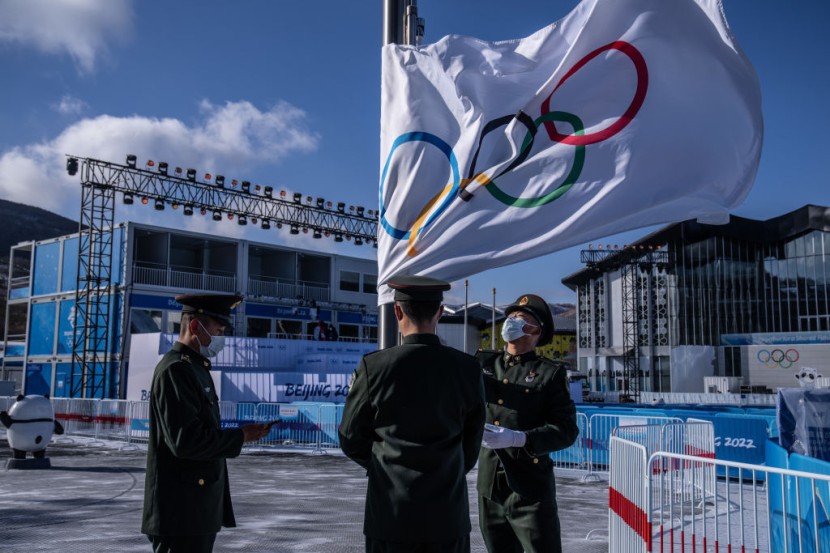
Residents in Beijing deal with sudden local lockdowns and widespread COVID-19 testing requirements as the Chinese government attempts to avoid a coronavirus outbreak in days leading to the Winter Olympics.
The strict measures are part of the government's "zero tolerance" measures that aim to manage the pandemic in preparation for the Olympics, which will begin on February 4. Now, residents are obliged to undergo COVID-19 tests in order to purchase medicines for cough, cold, fever, and other ailments.
The Chinese government strictly regulates the sales of medication. Drug stores even require a doctor's prescription for medicines for the common cold or even food supplements. Purchases of medicines are tracked through a smartphone app that requires customers to input information when they buy health supplies.
According to the Associated Press, anyone who had purchased any of the types of medications mentioned in the previous two weeks was required to get tested for COVID-19 within 72 hours, according to a sign placed at a Beijing drugstore on Tuesday.
The notice warned that failure to comply would have a consequence on users' health conditions recorded on their phones that could hurt their daily activities.
Read Also : Beijing On High Omicron Alert As Winter Olympics Approach; 'Zero-Tolerance' Policy Under Pressure
Strict Measures Help Lower Cases of COVID-19 Infections
In the residential community of Anzhen, around 2 kilometers (1.2 miles) from the main Olympic Village, residents were confined to their homes from Sunday until Tuesday. One building remained under isolation. Though there were no reported confirmed COVID-19 infections in the area, residents were still required to undergo COVID-19 testing. They are also mandated to monitor their health condition two weeks after the quarantine period.
The strict measures being imposed seem effective in suppressing COVID-19 outbreaks. On Tuesday, China recorded only 18 cases of local illness, five of which were in Beijing.
Since January 4, no less than 3,000 people have arrived for the Winter Olympics. The number includes more than 300 athletes and team officials, plus media professionals and other participants, organizers. As per ABC, 78 people have tested positive, including one who was identified as an athlete or team official.
Depending on the severity of their condition, infected individuals are sent to an isolation facility or a hospital.
Despite the relatively low number of infections, the wide precautions show the acute concern of government officials in preparation for the Winter Games. Beijing city spokesperson Xu Hejian admitted that the situation in his area is "grim and complicated," but all concerned departments in the city should take swift and proactive actions.
Uighur Muslims Seek Boycott of the Winter Olympics
Meanwhile, hundreds of activists from China's Uighur Muslim ethnic group marched in Istanbul, pushing for a boycott of the Winter Olympics in Beijing to protest the Chinese government's oppression of the minority.
Protesters gathered outside the Turkish Olympic Committee building in Istanbul on Sunday, holding blue-and-white flags of the East Turkestan Independence movement, which the Chinese communist government claims a threat to the stability of its outlying western region of Xinjiang.
One Uighur housewife said that Beijing does not deserve to host the Olympics, which advocate peace and goodwill among participants.
"China does not have the right to host the Olympics while committing all the torture, cruelty, and genocide against Uighurs," said Uighur housewife Munevver Ozuygur, who claims she has relatives detained in Chinese camps, per Al Jazeera.
Related Article : Beijing Winter Games App Contain Security Flaws Experts Warn; Olympic Torch Relay Cut Down To Three Days
© 2026 HNGN, All rights reserved. Do not reproduce without permission.








